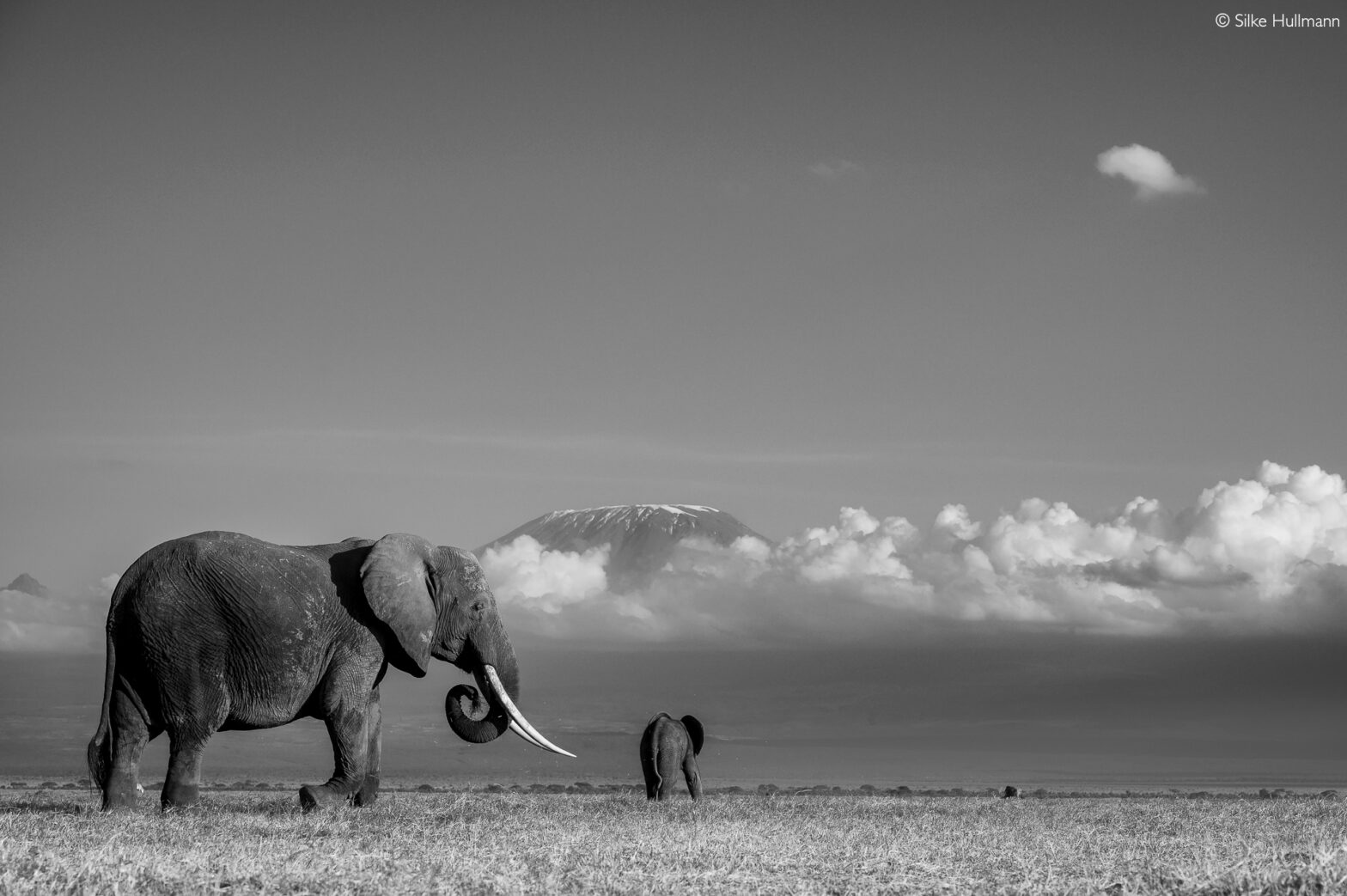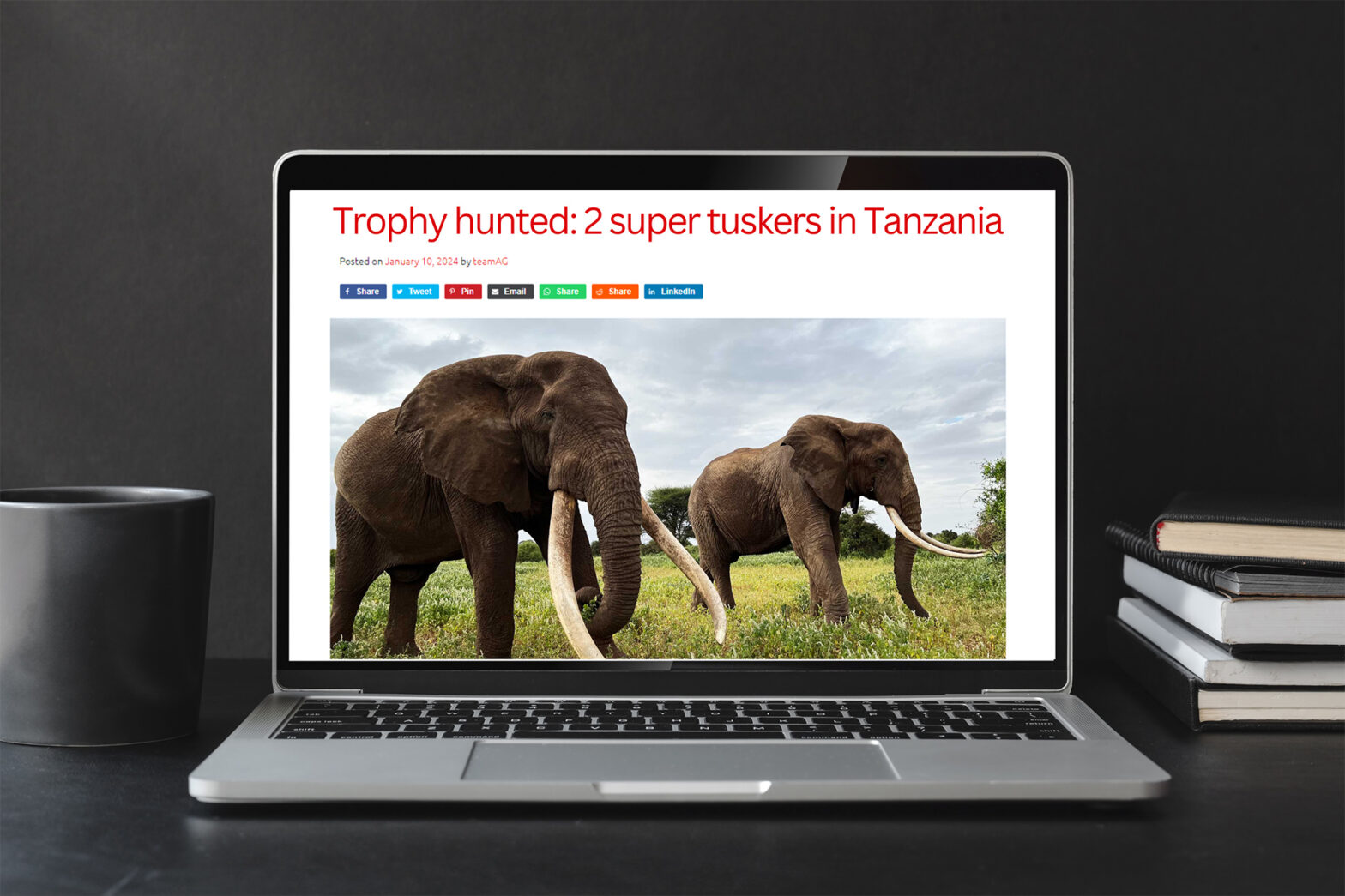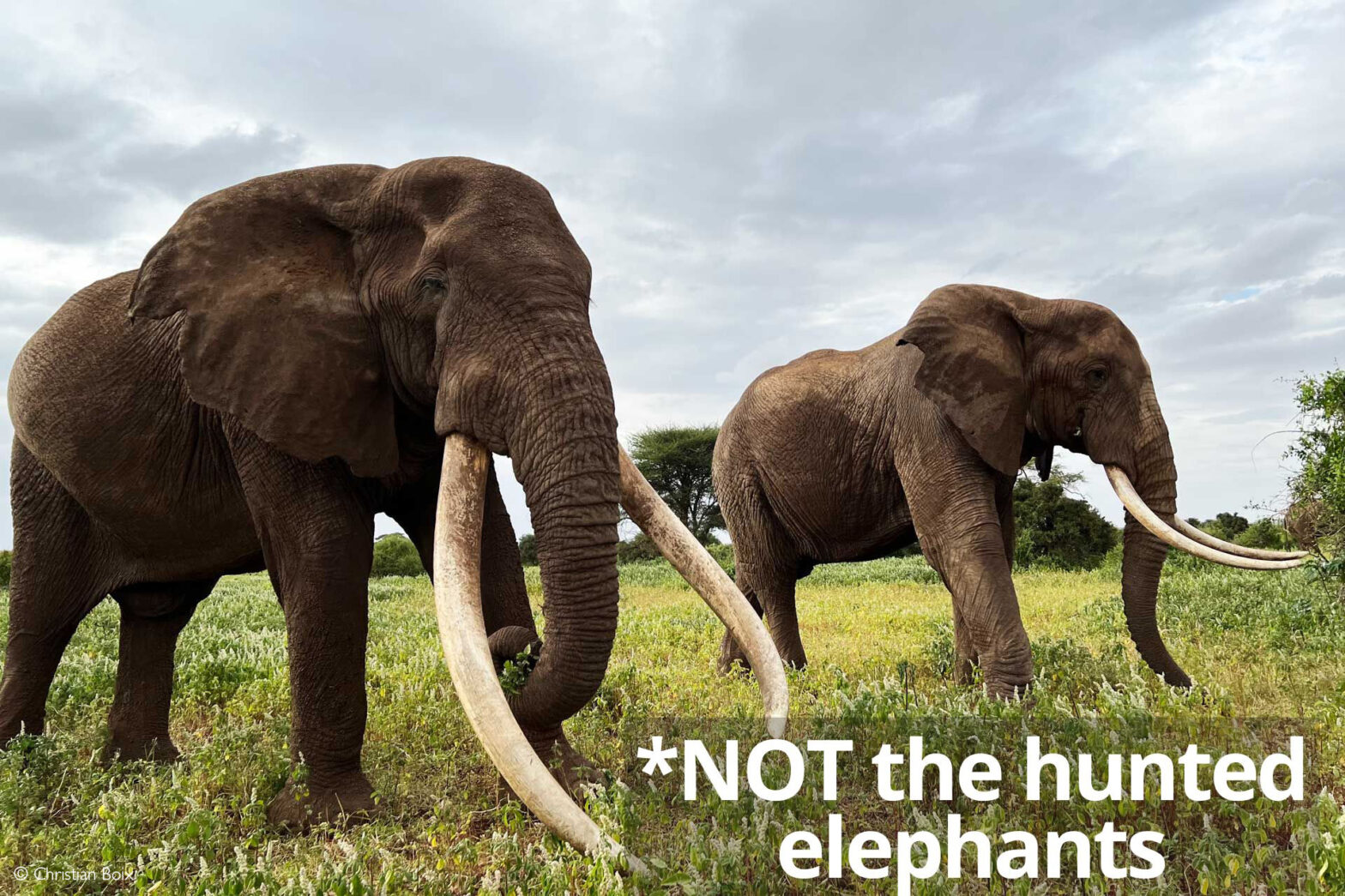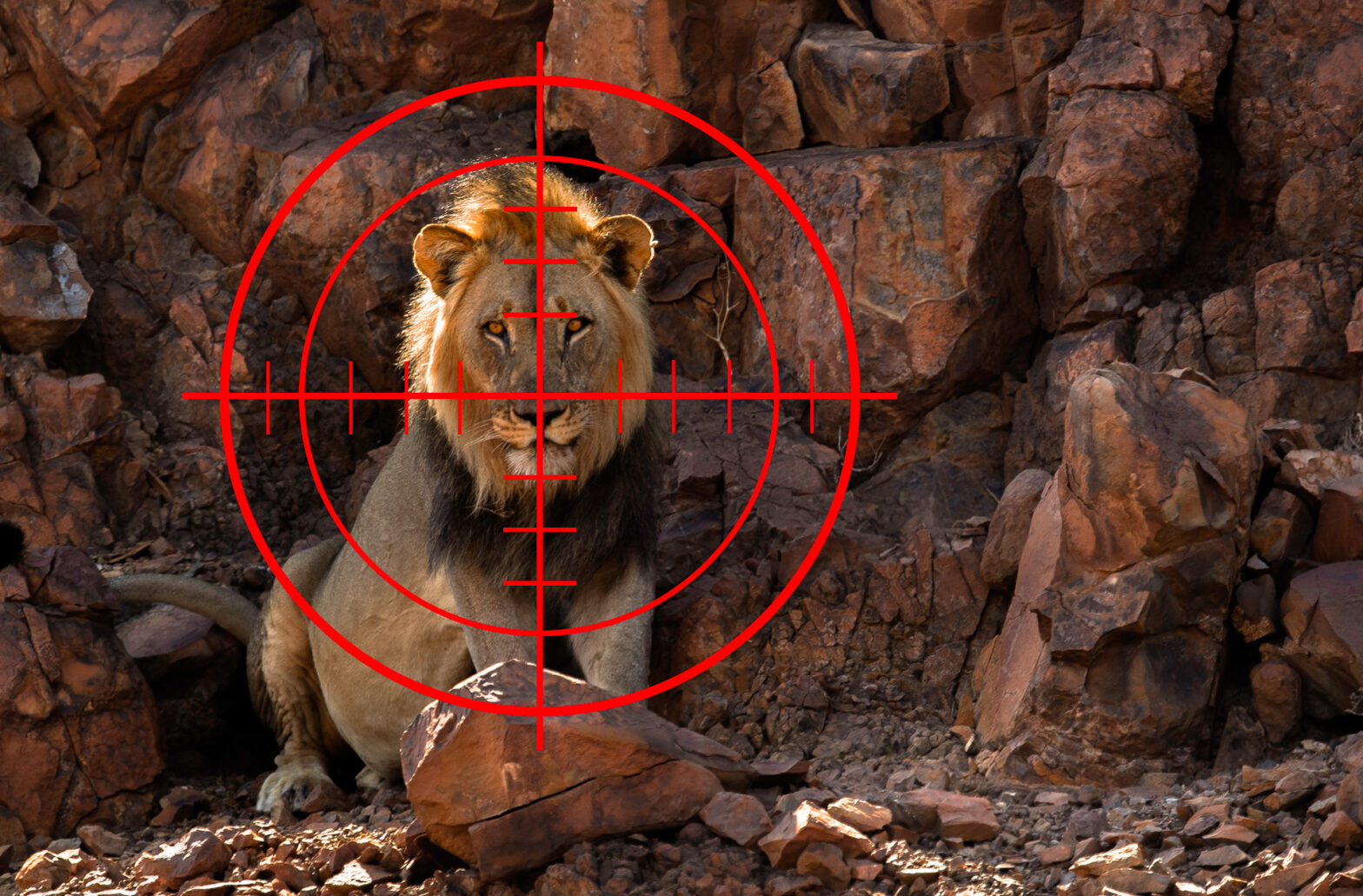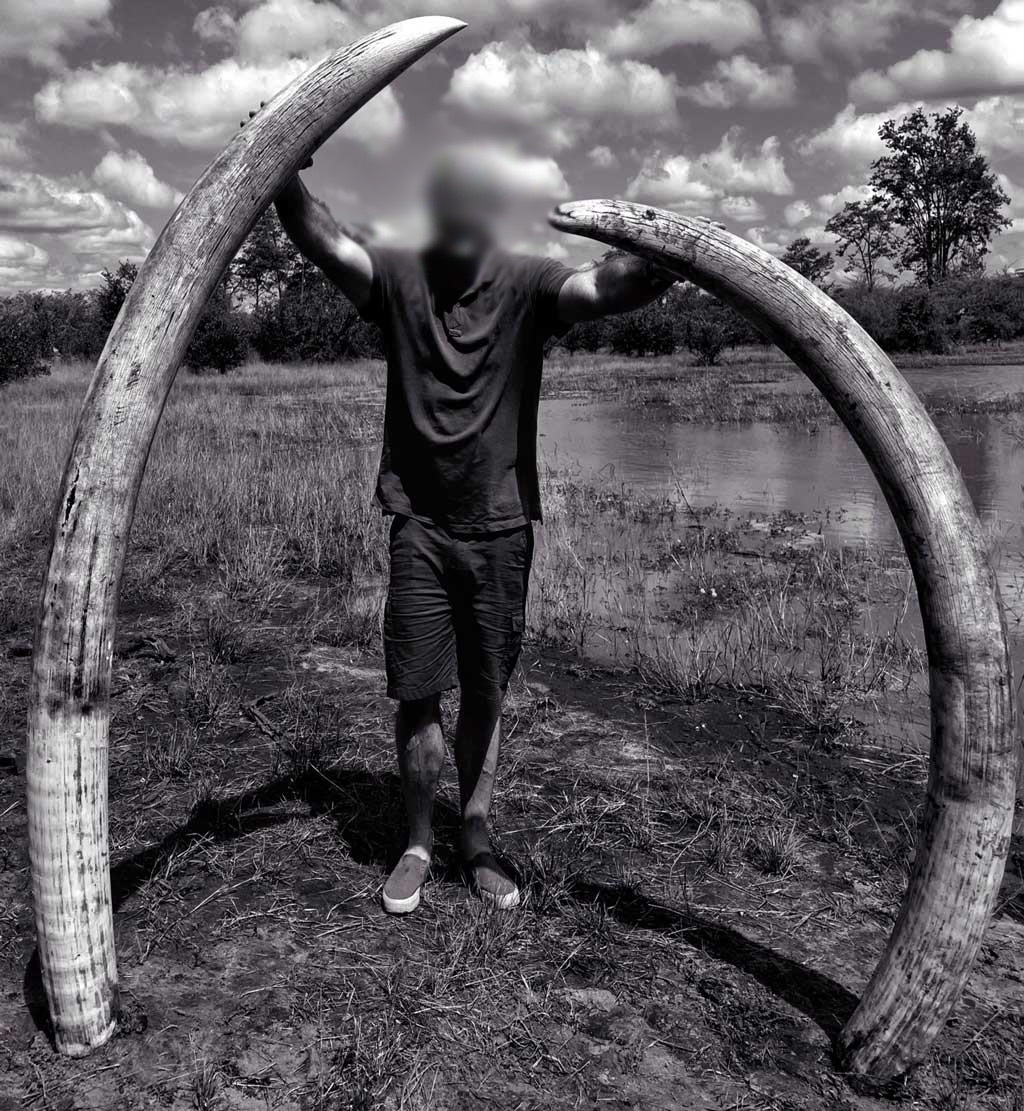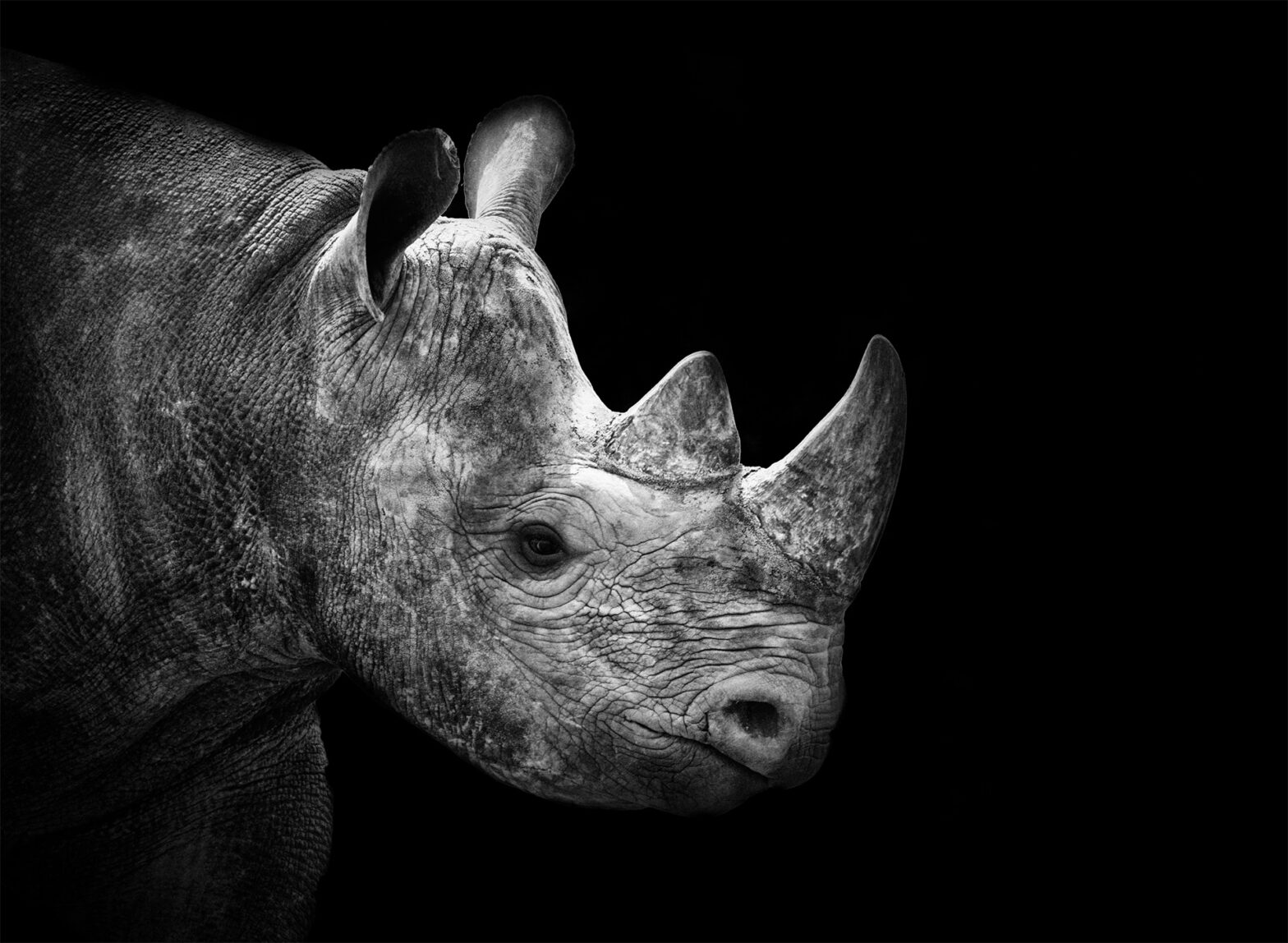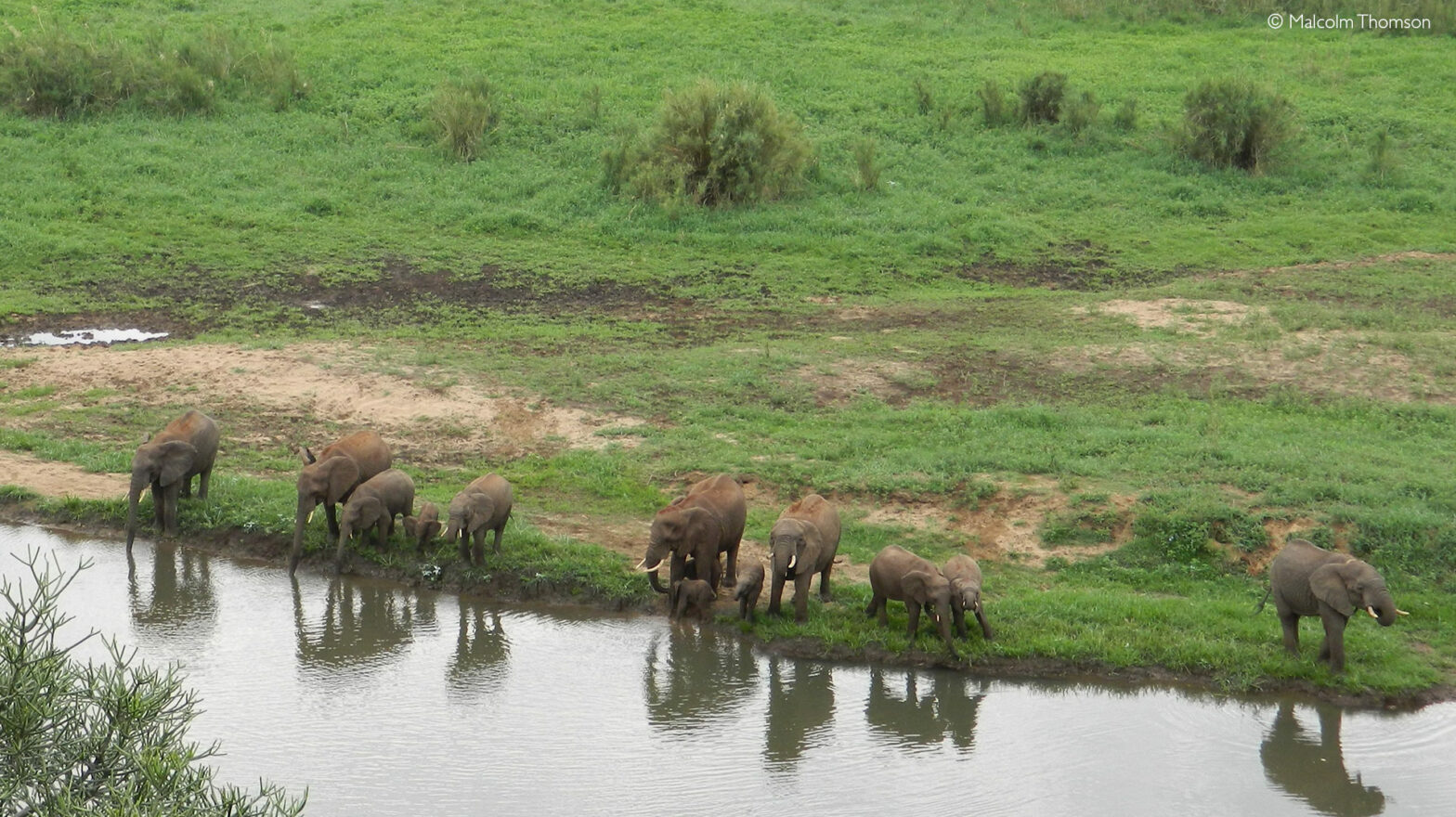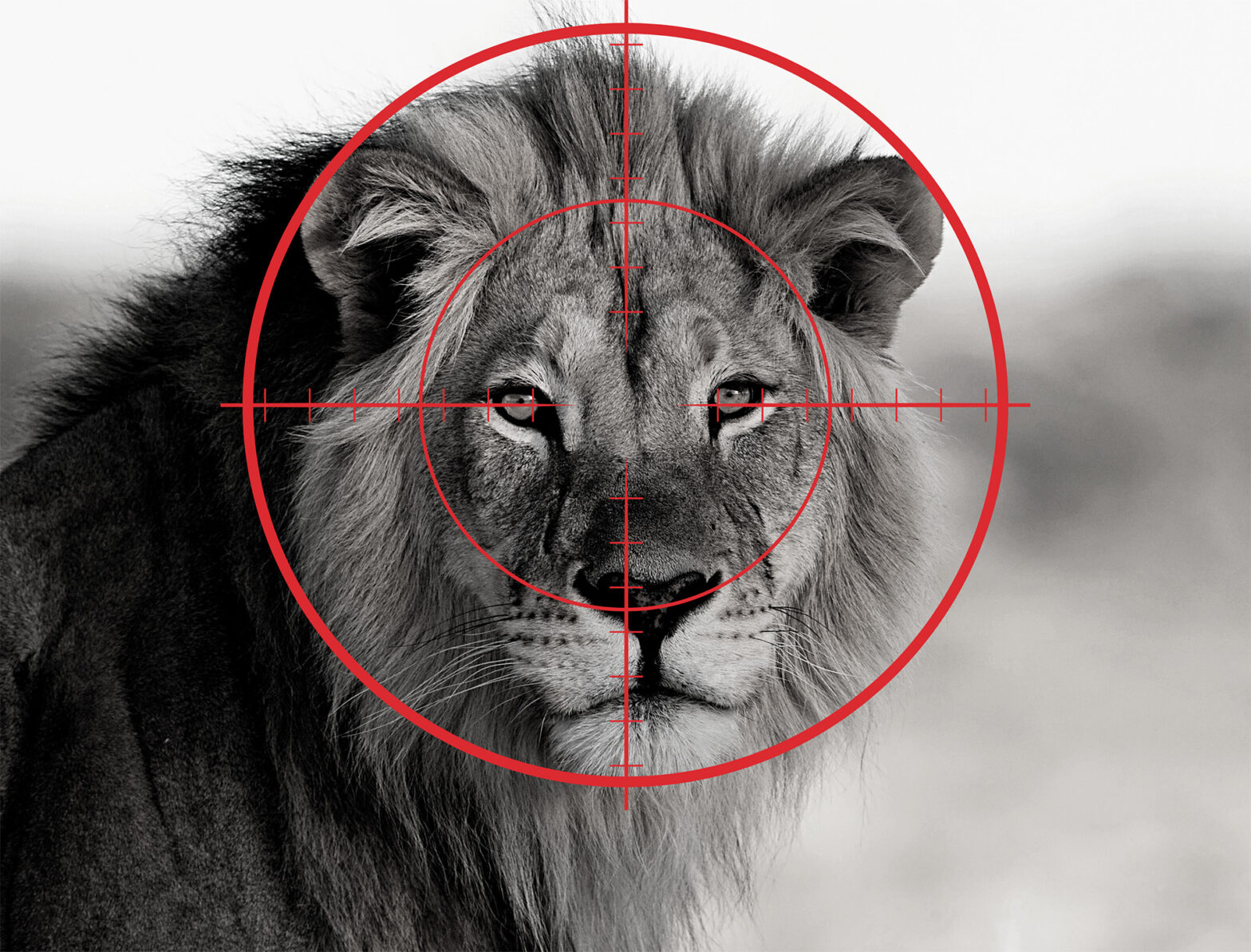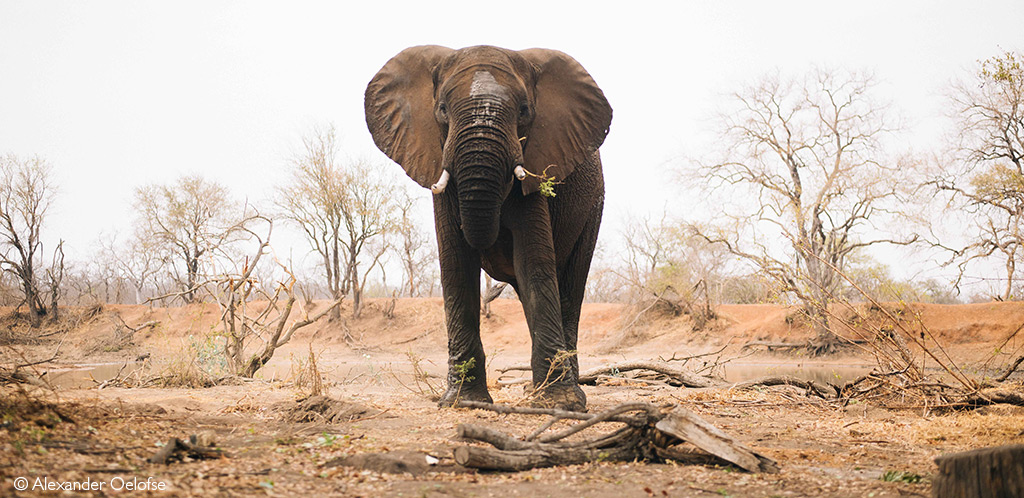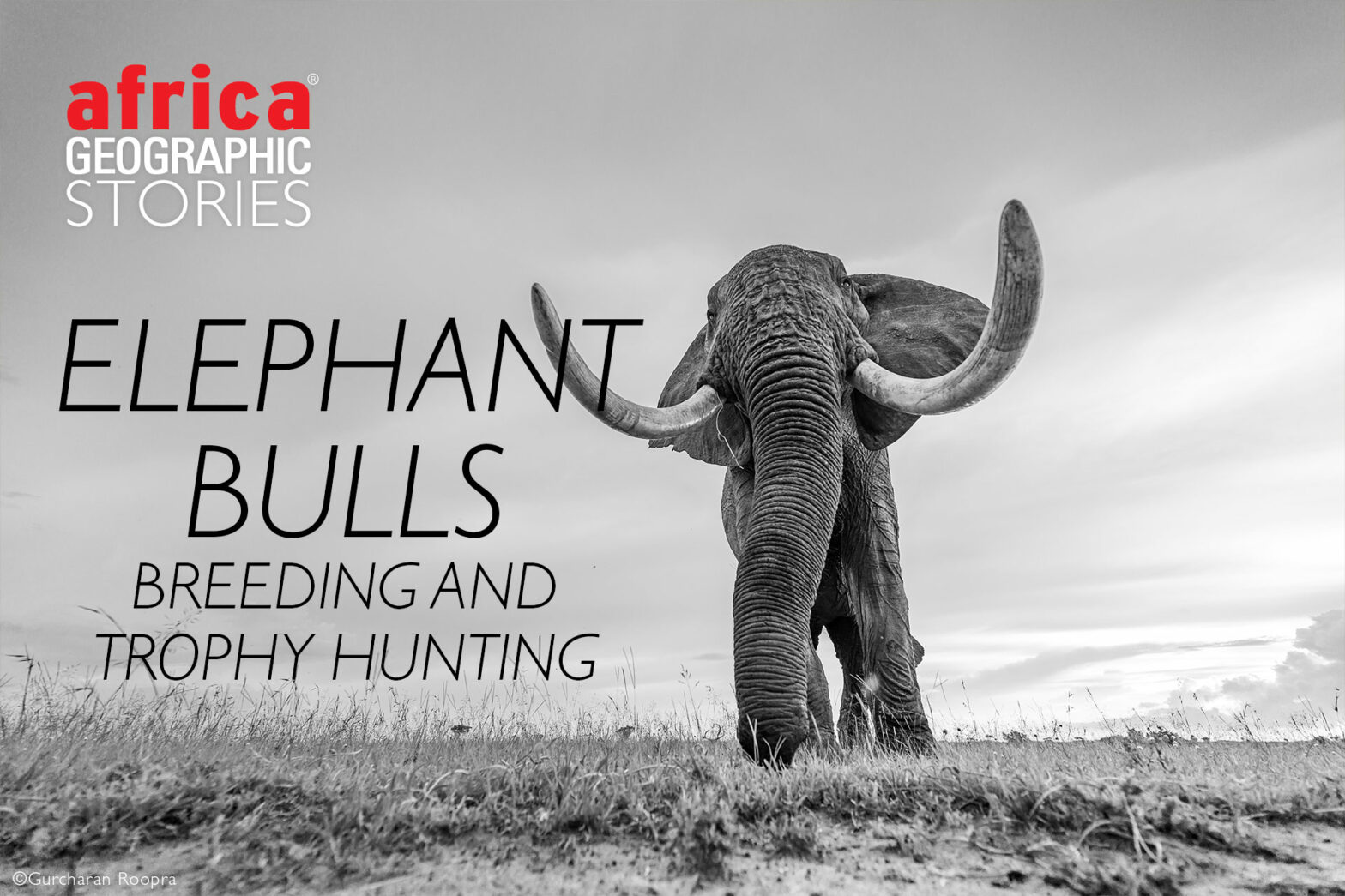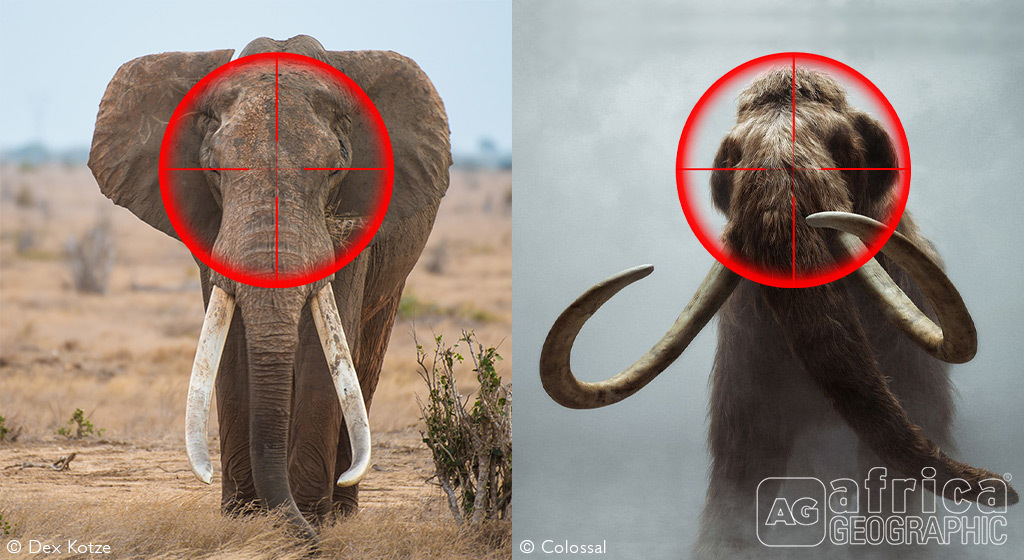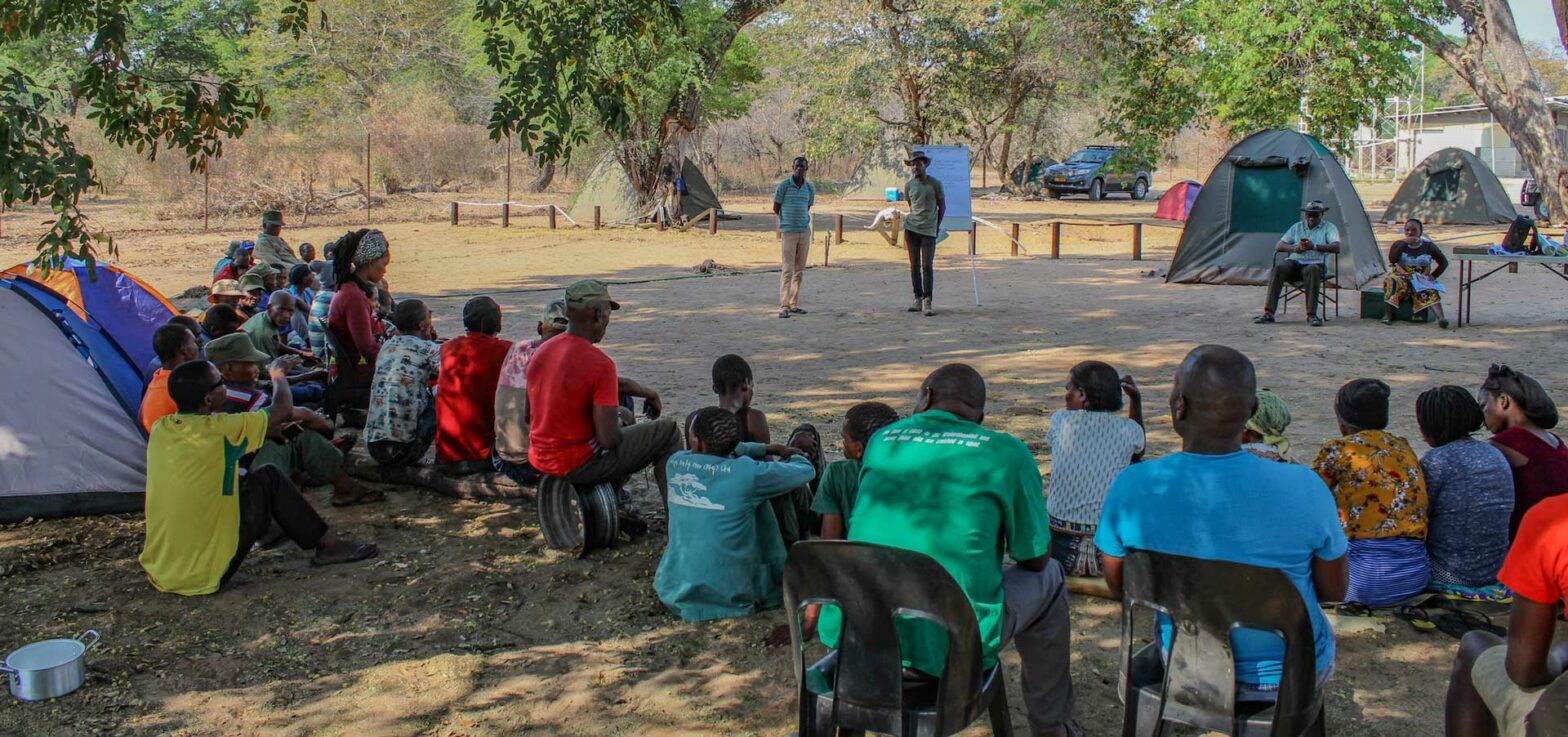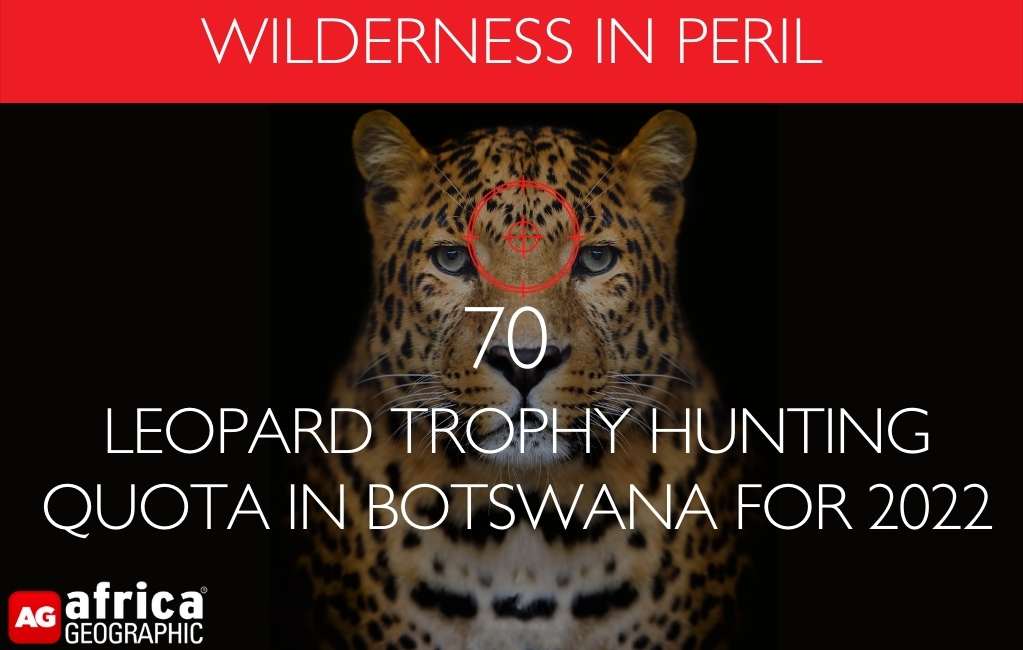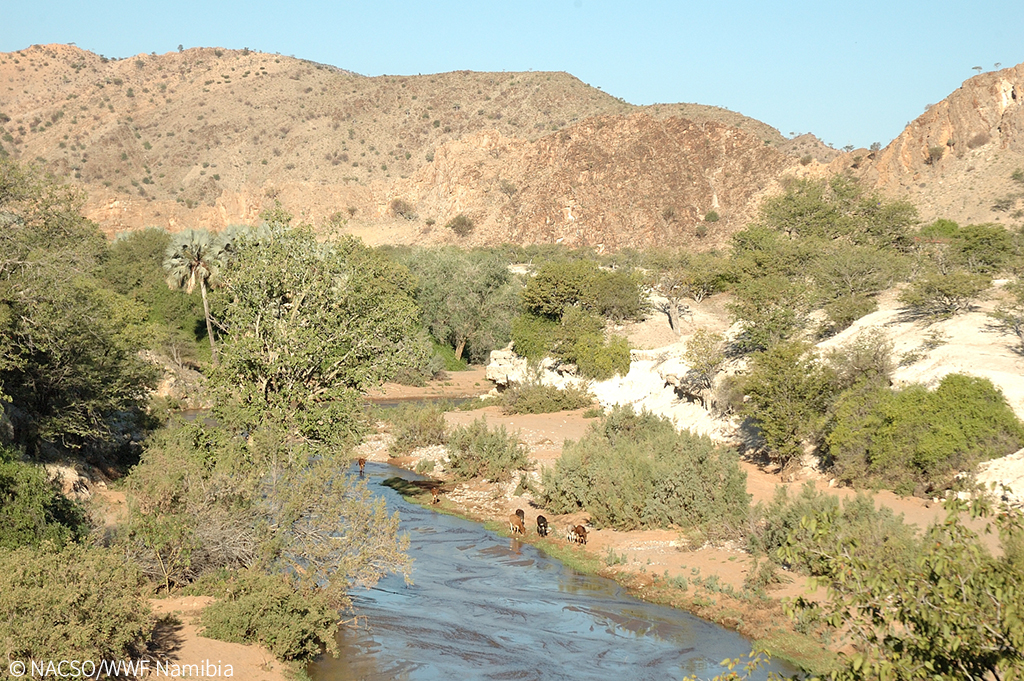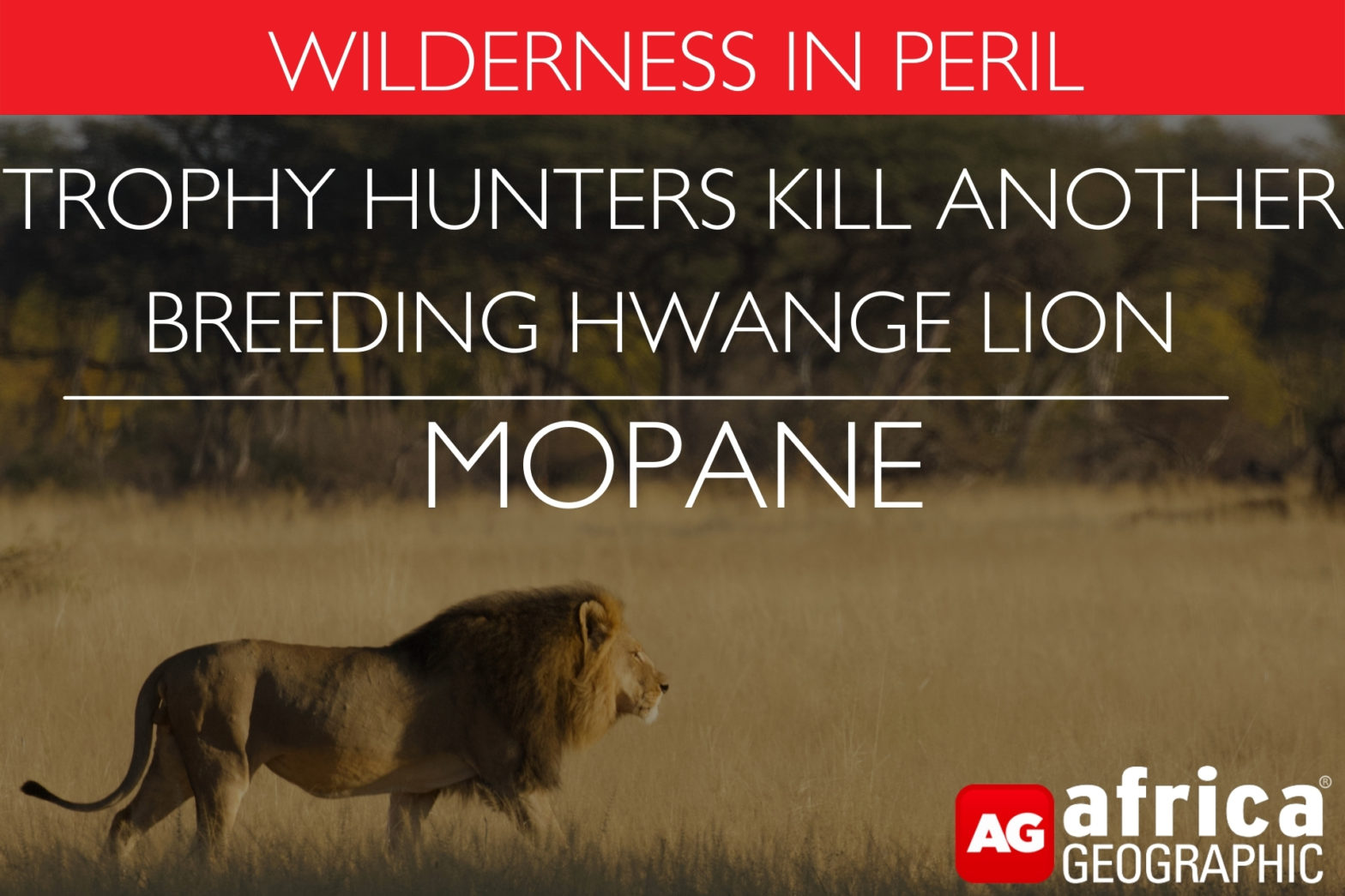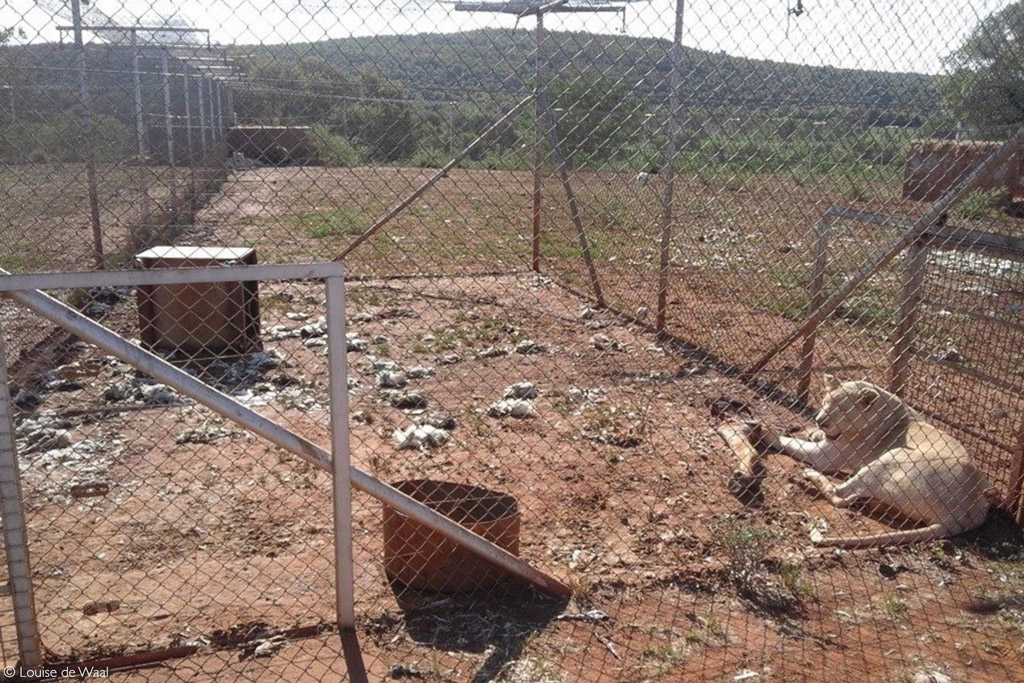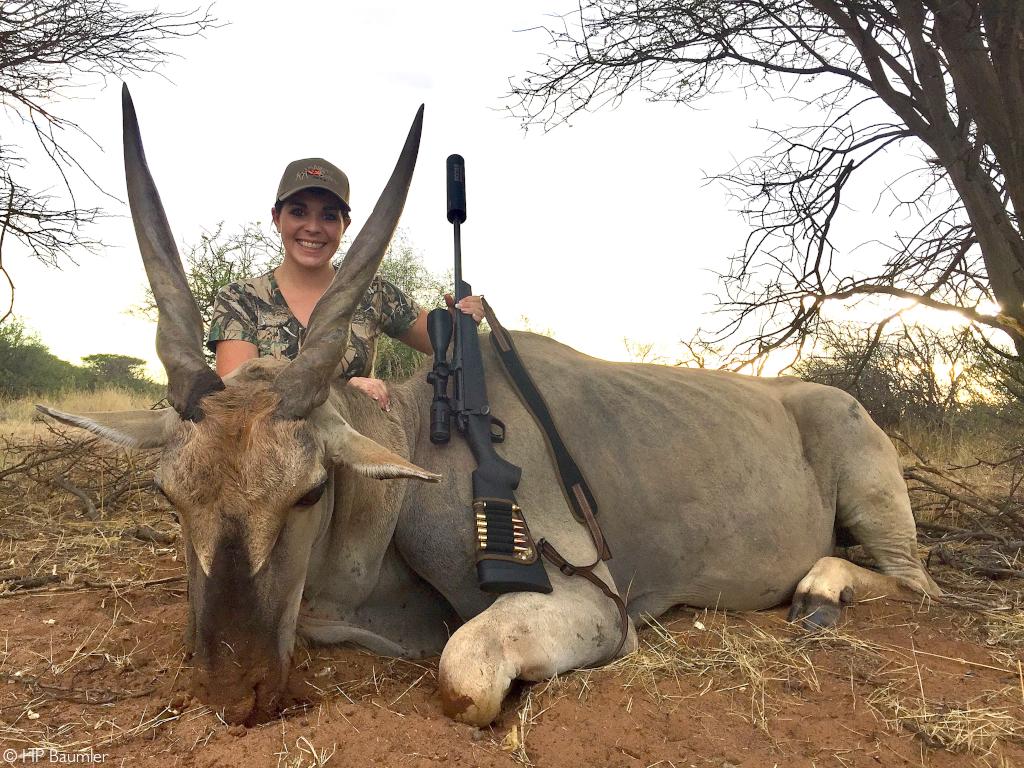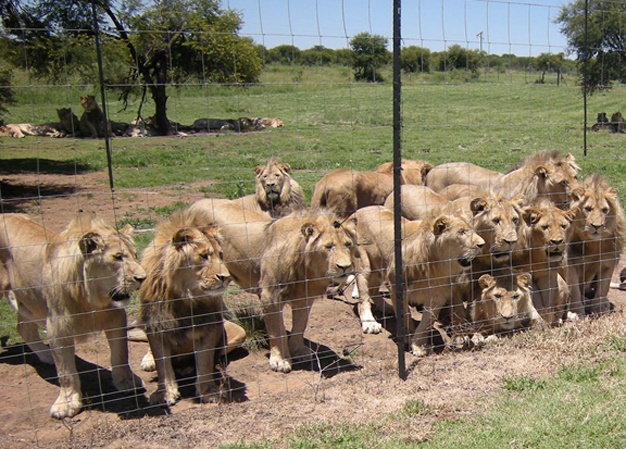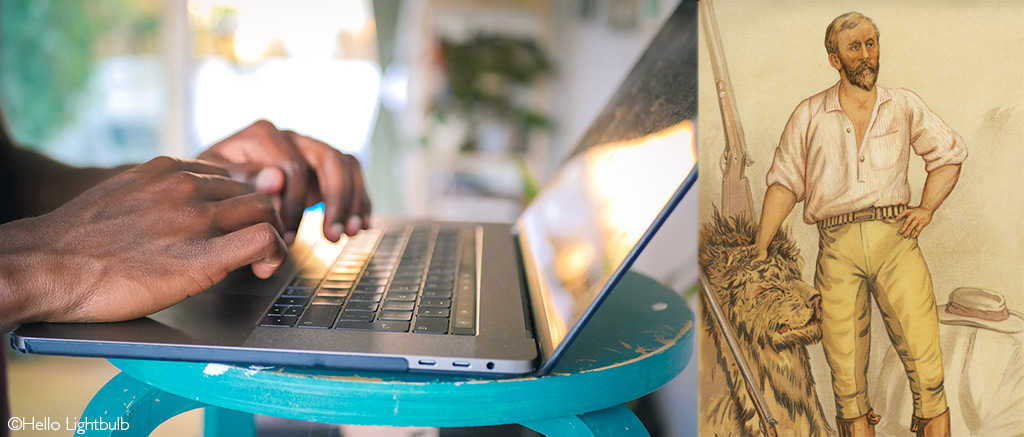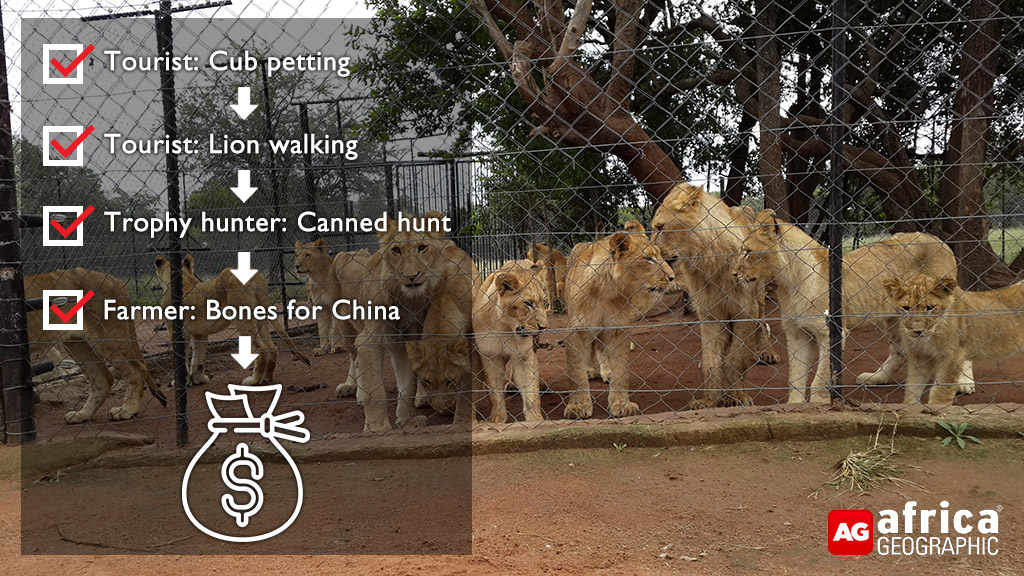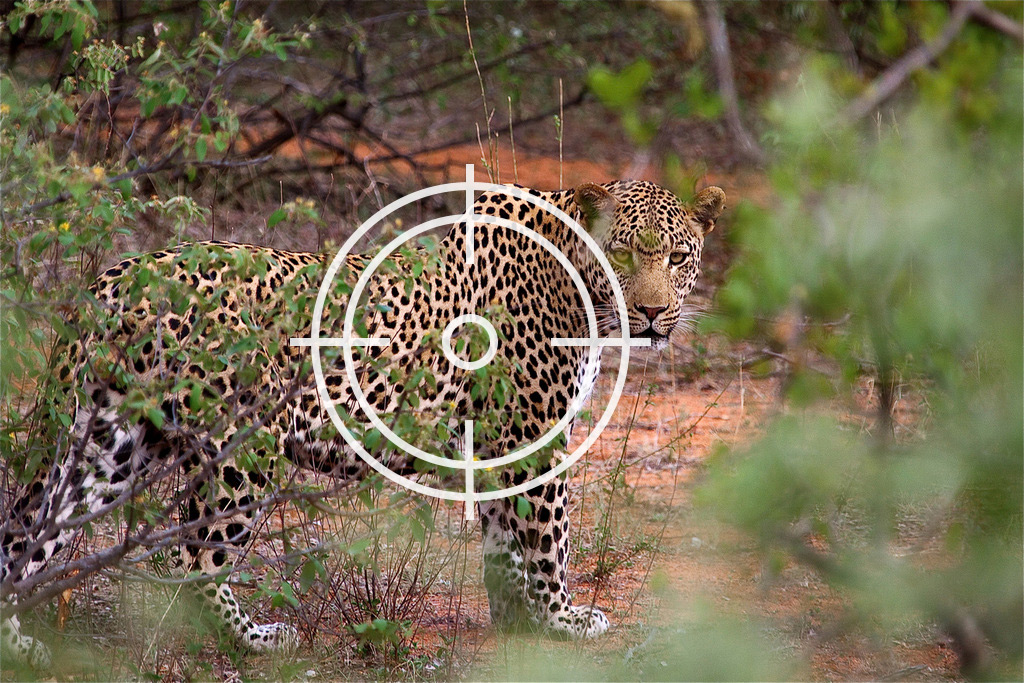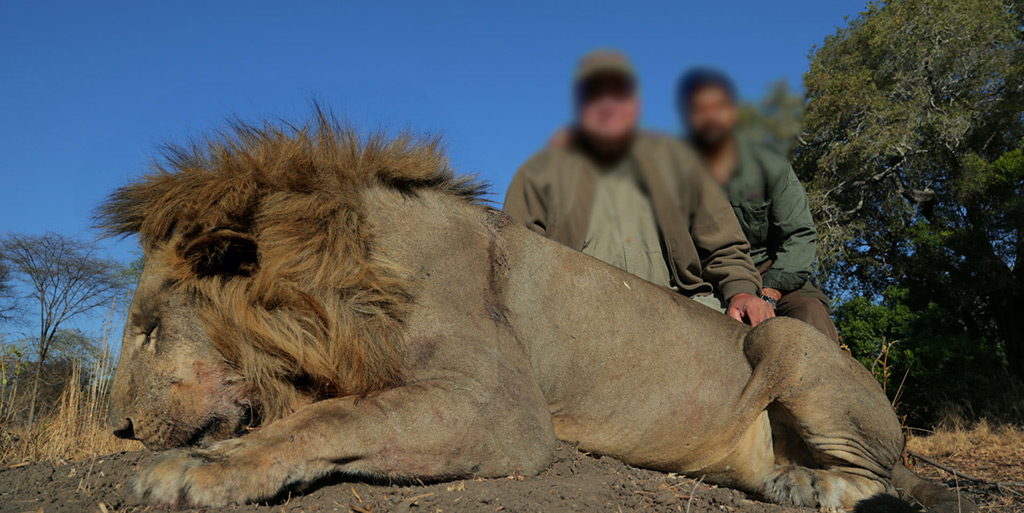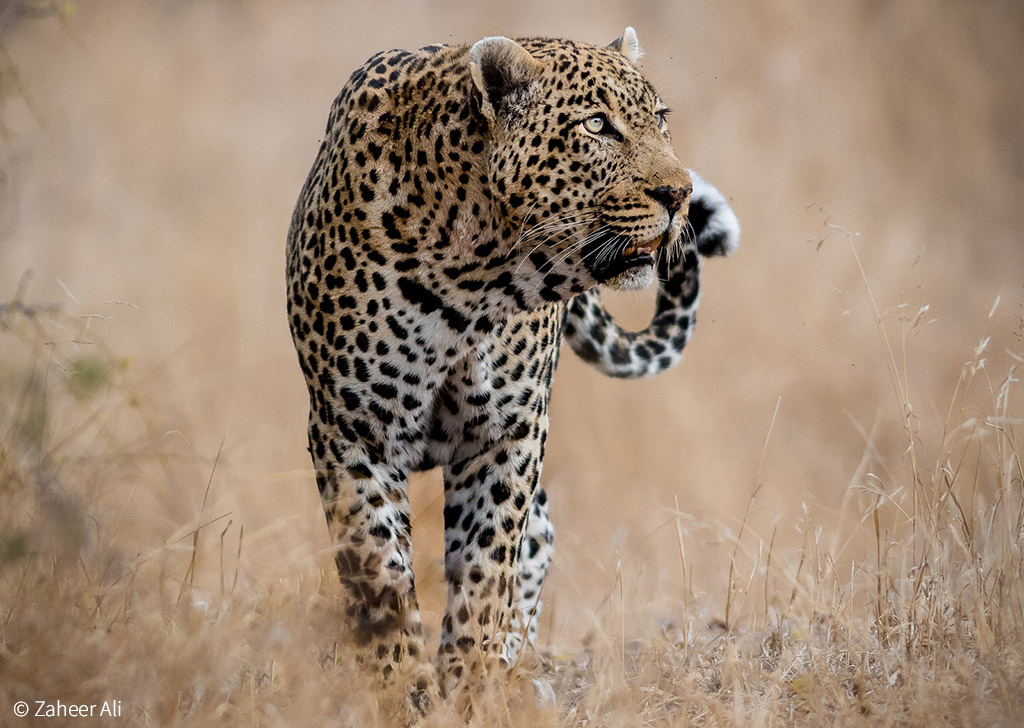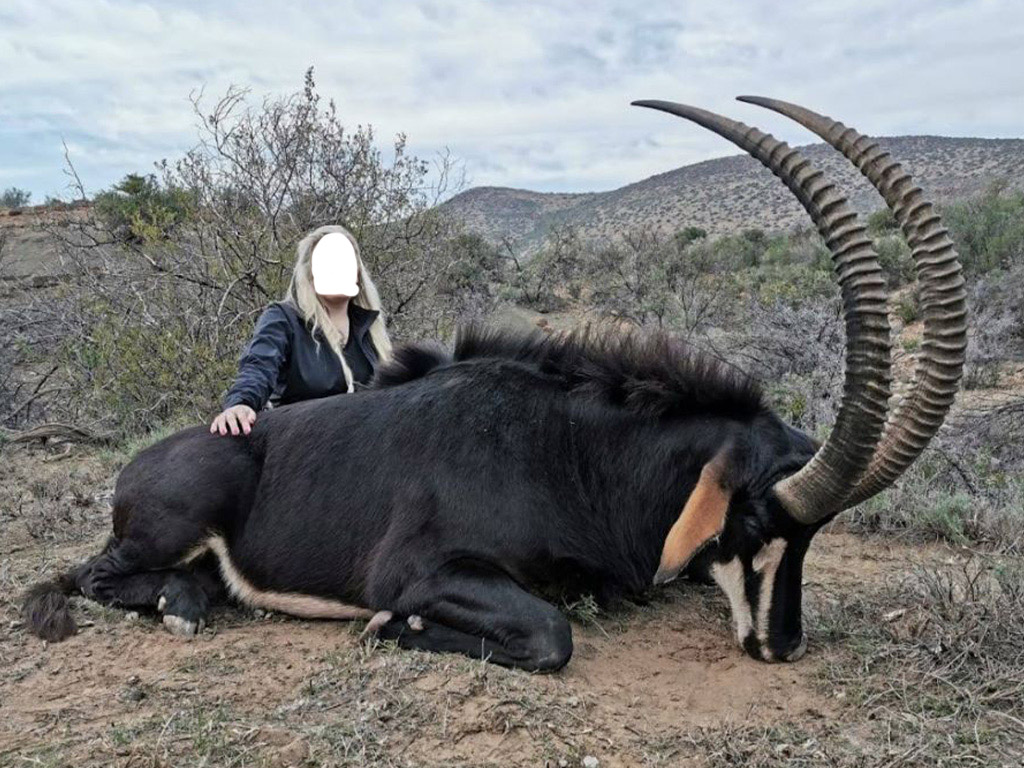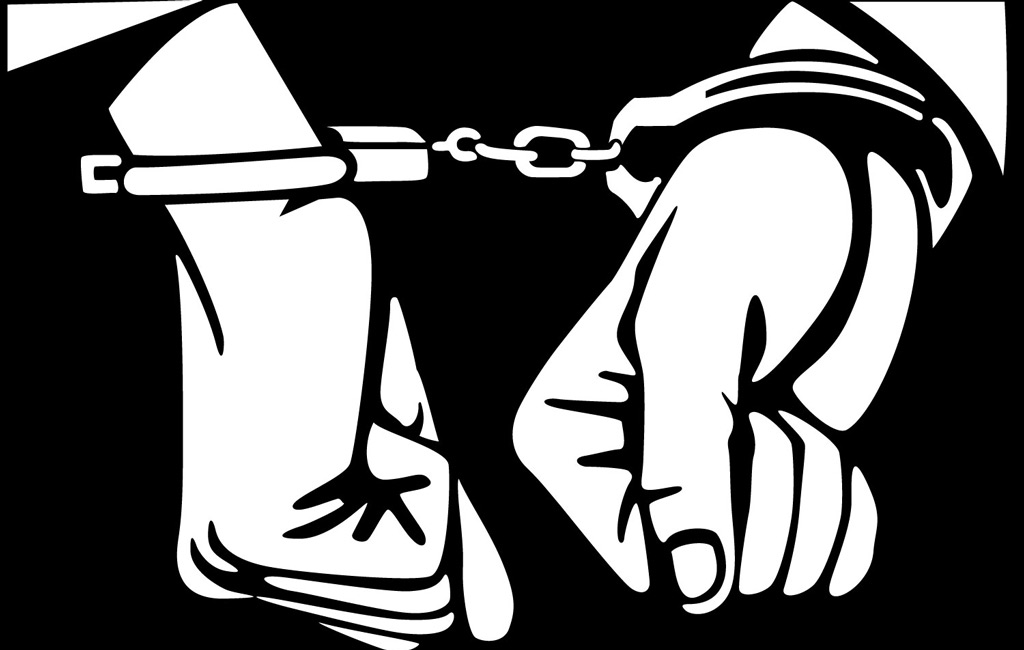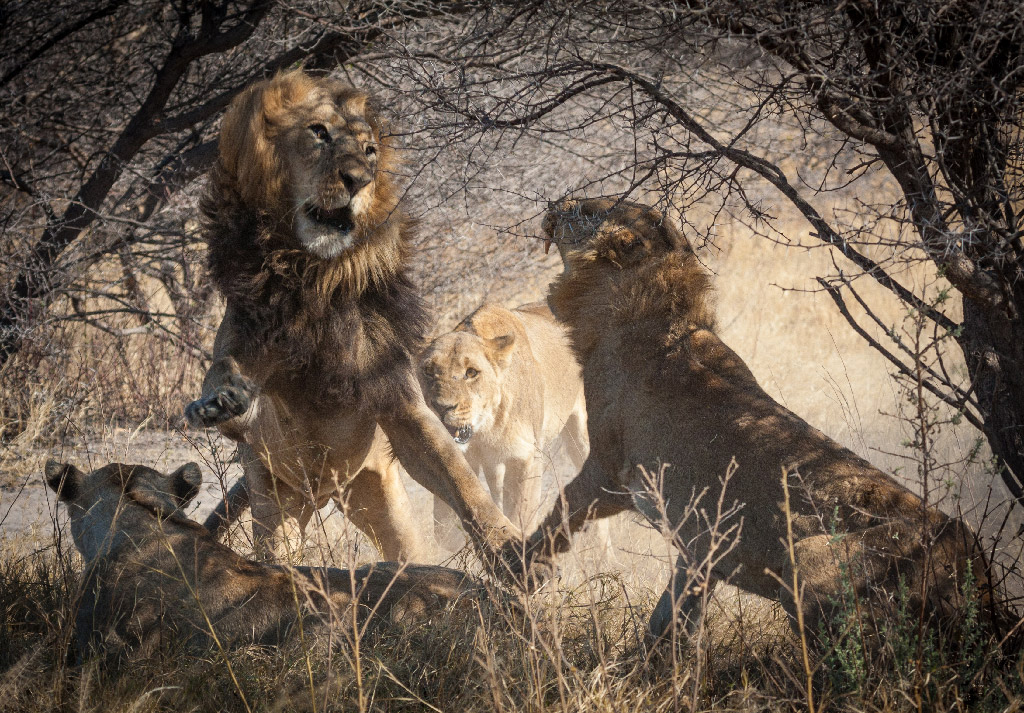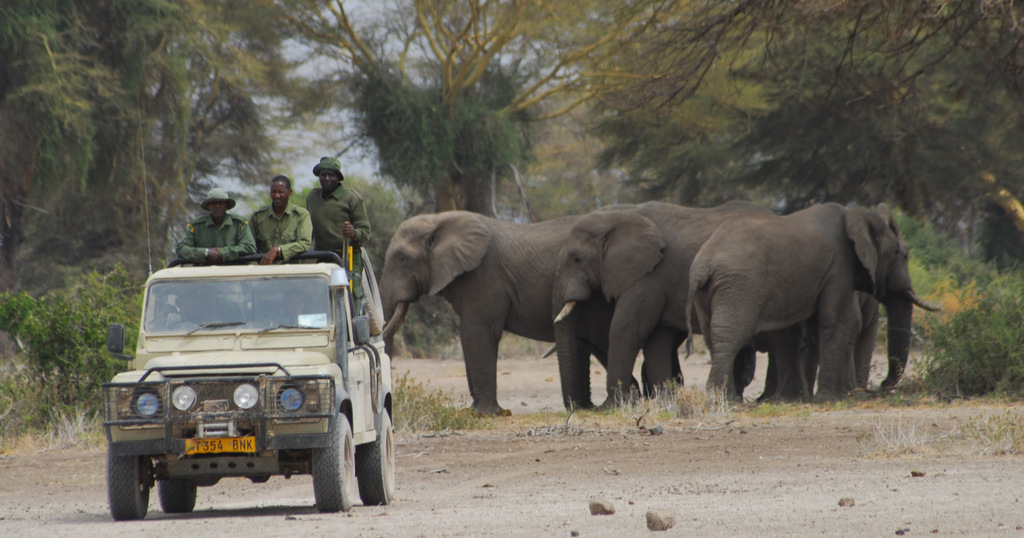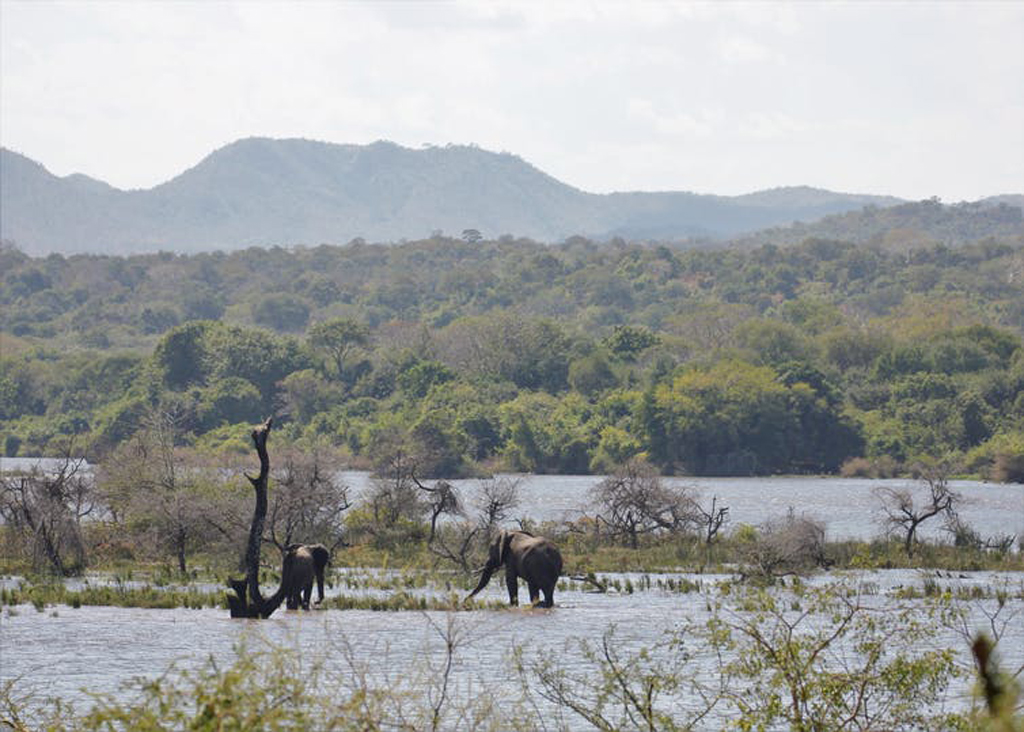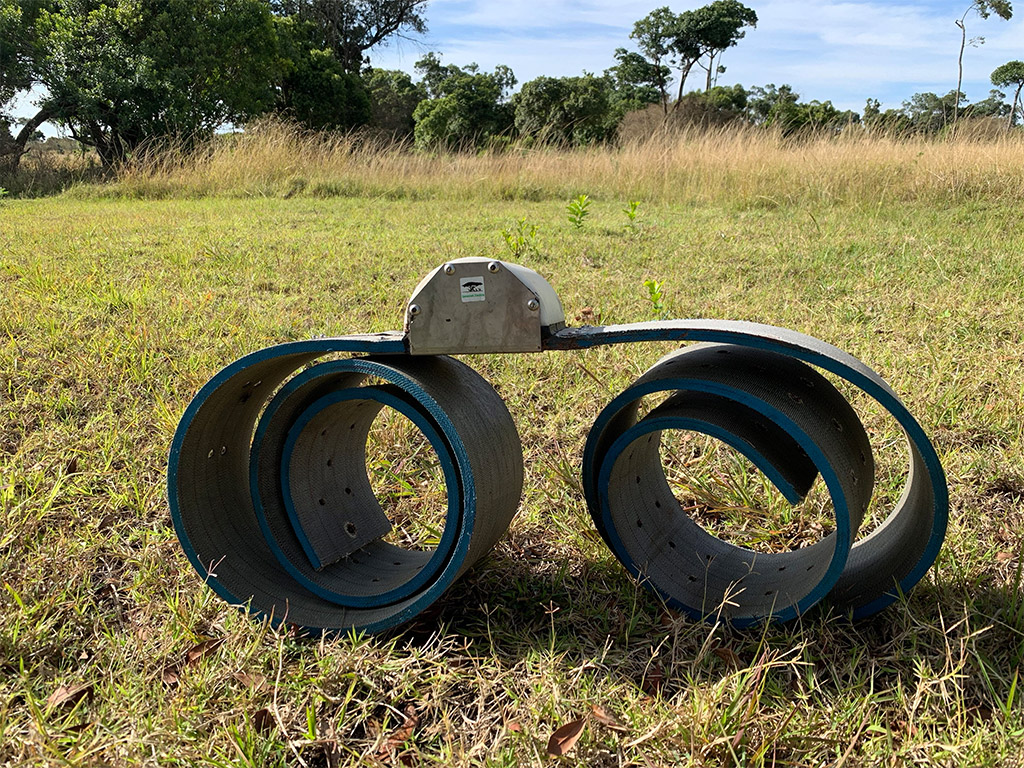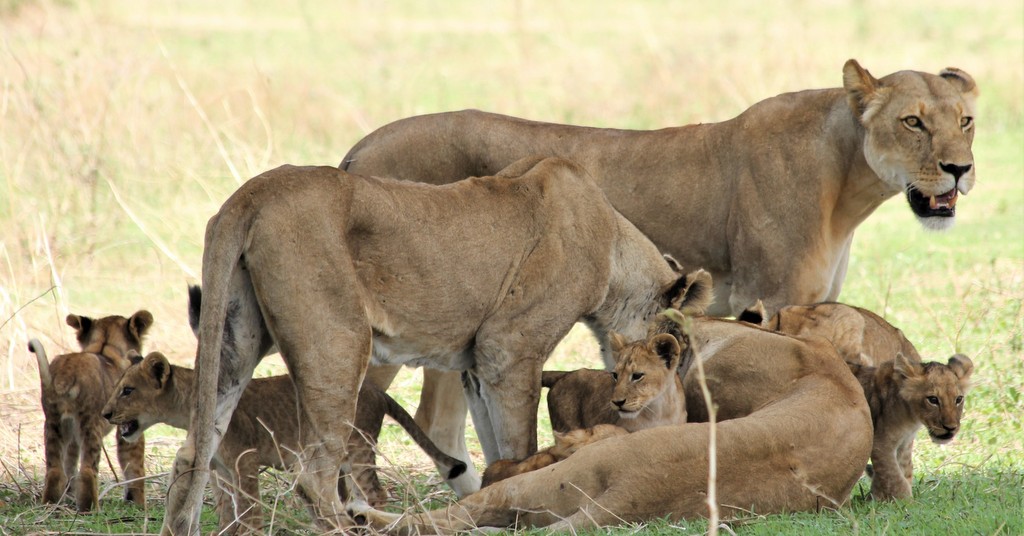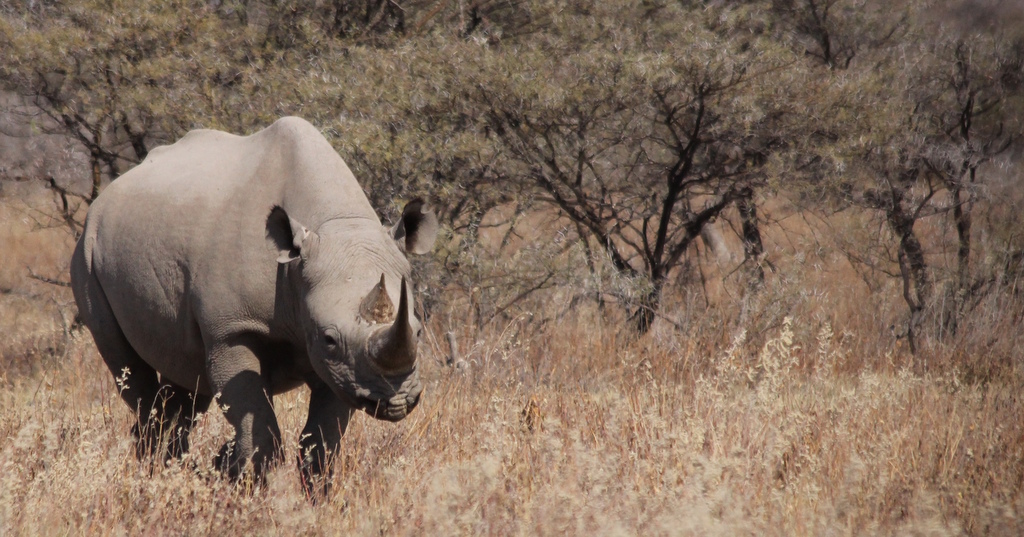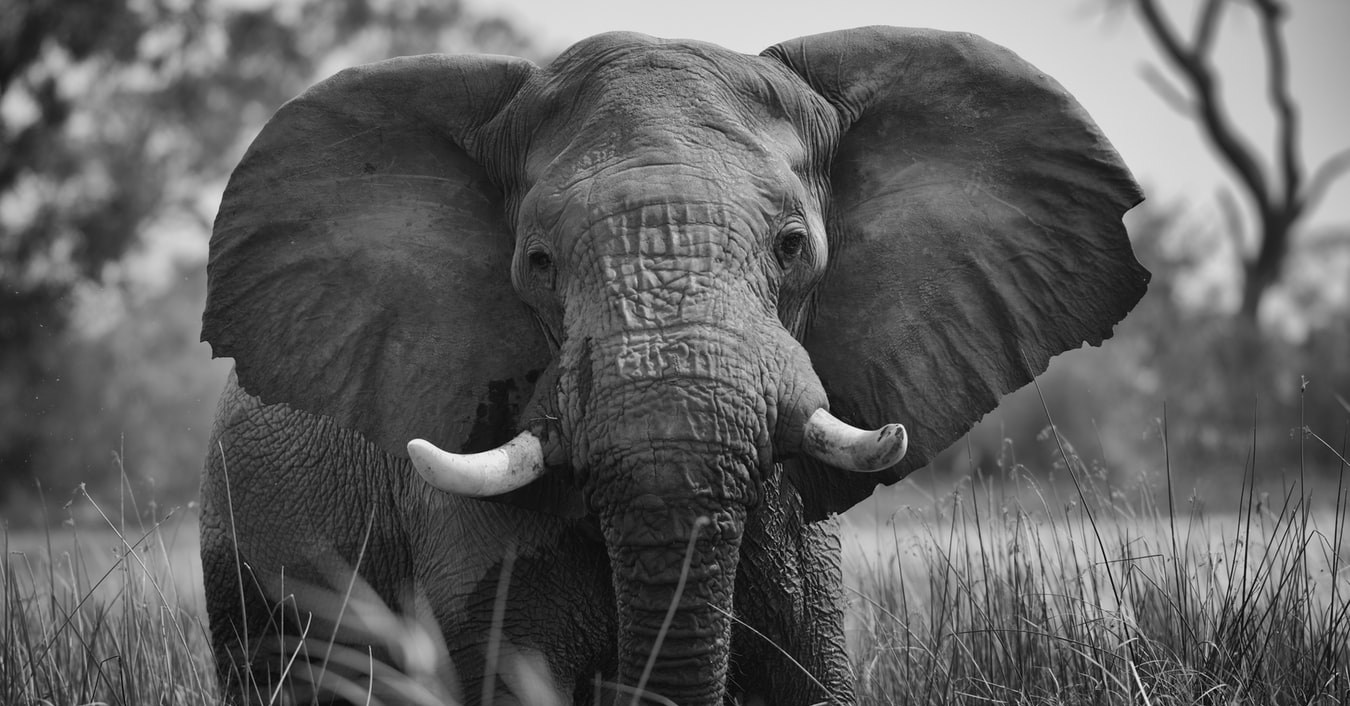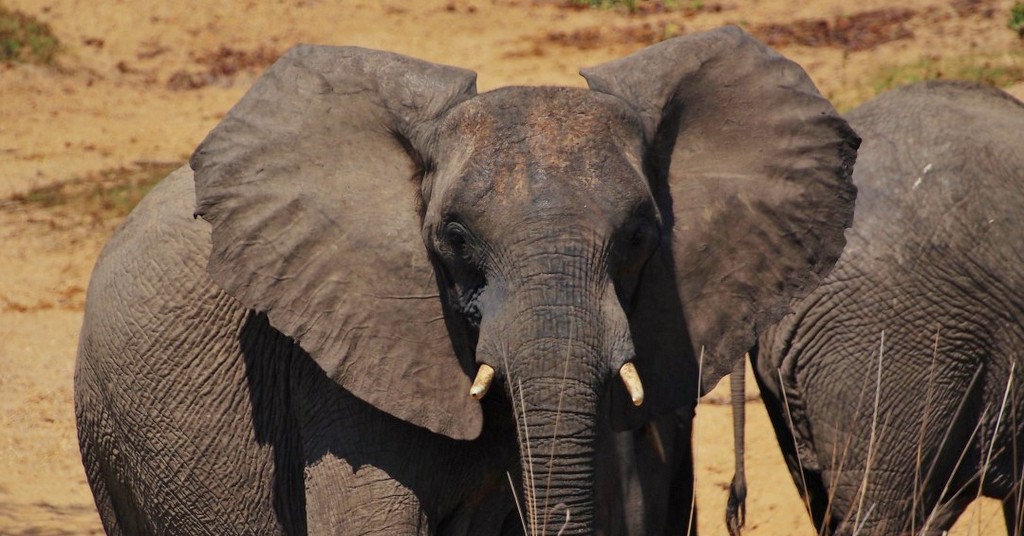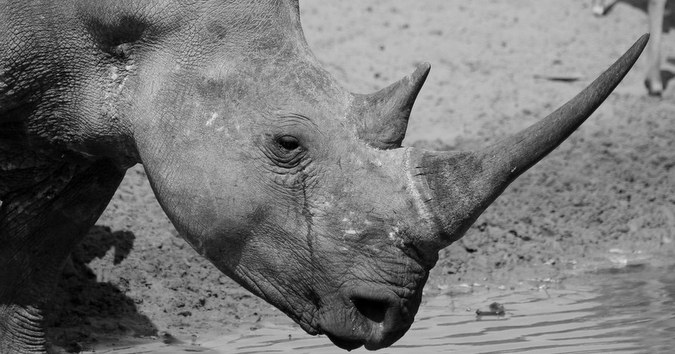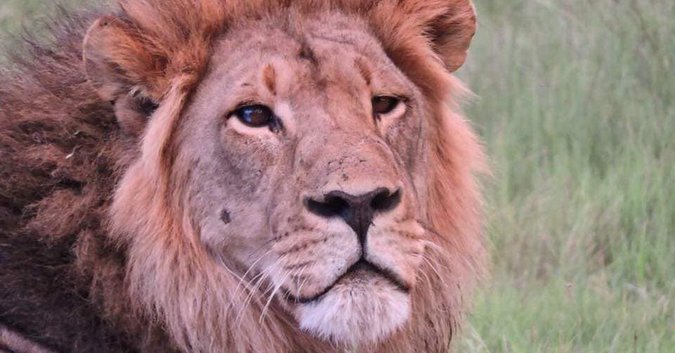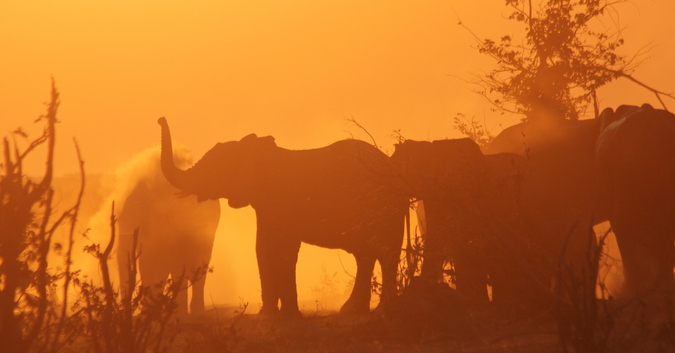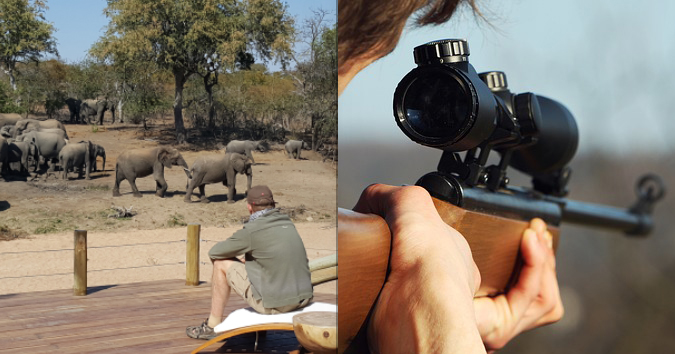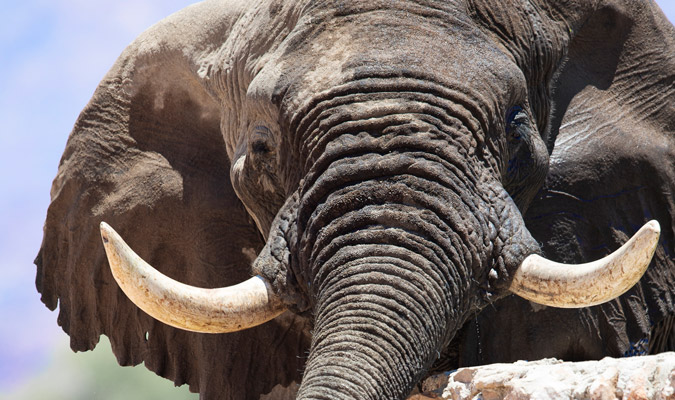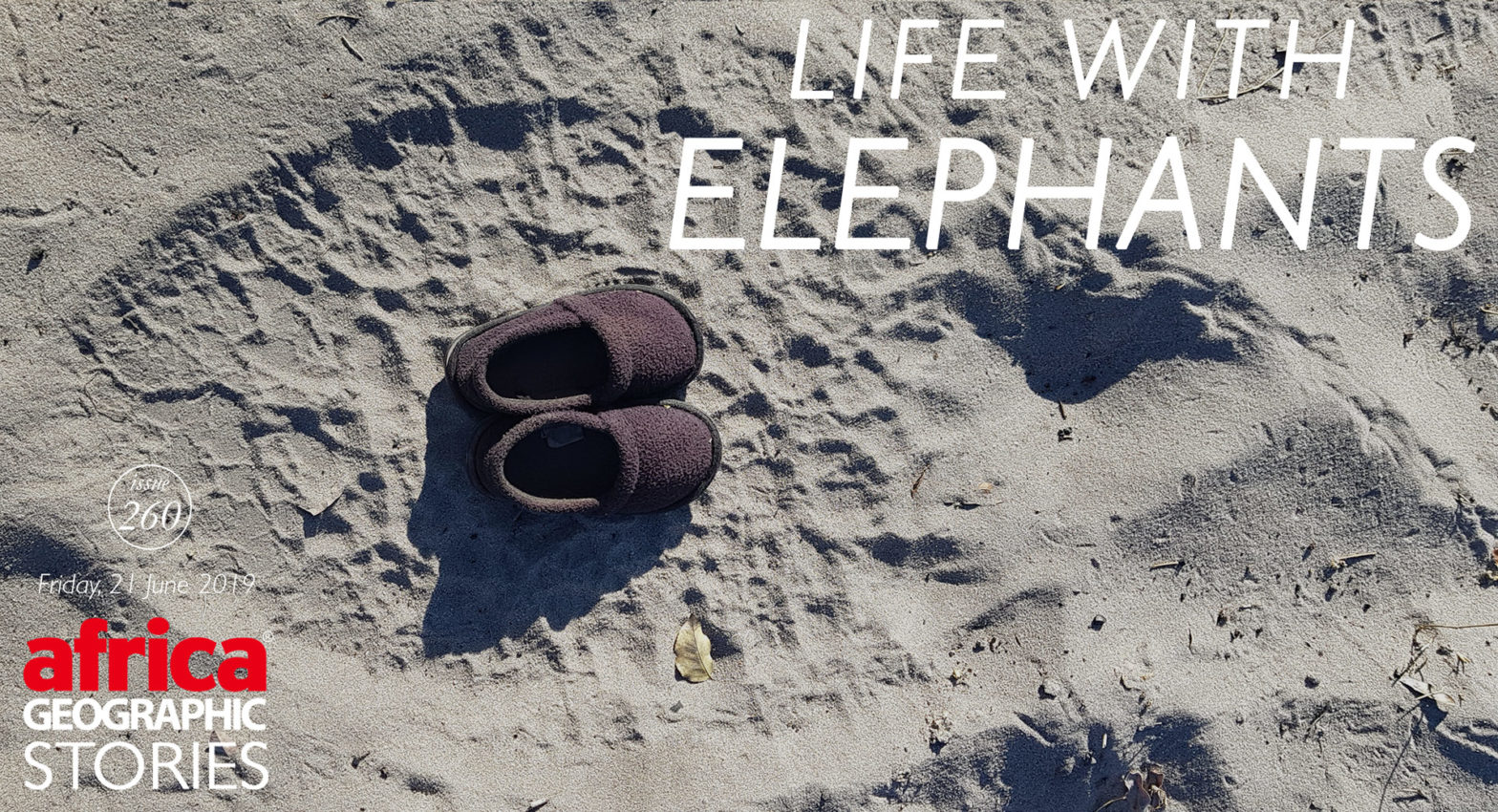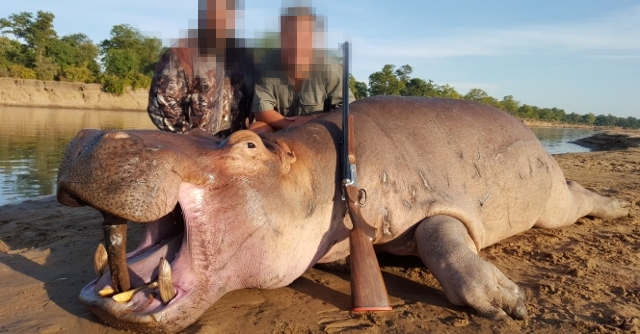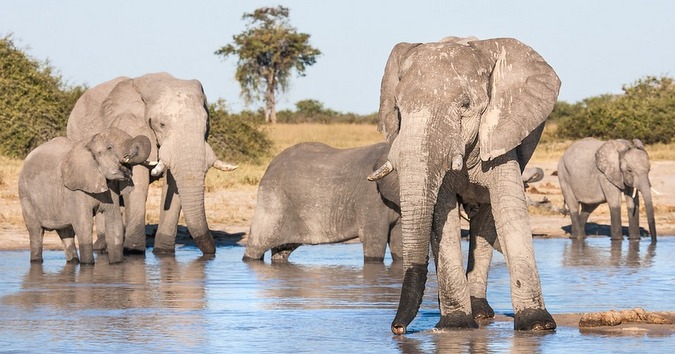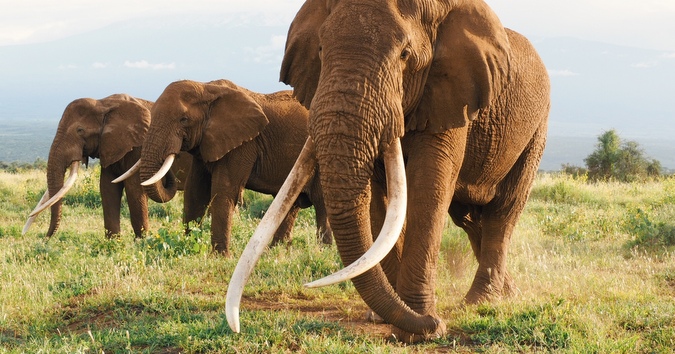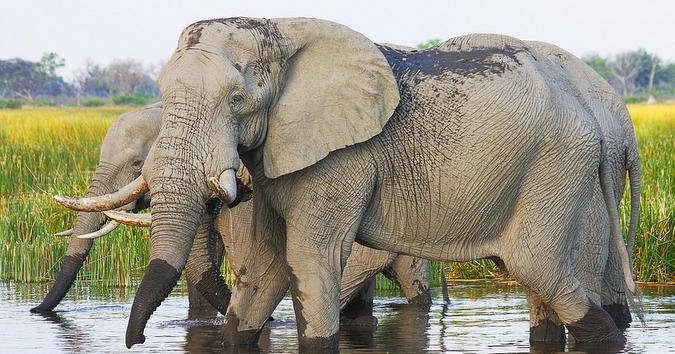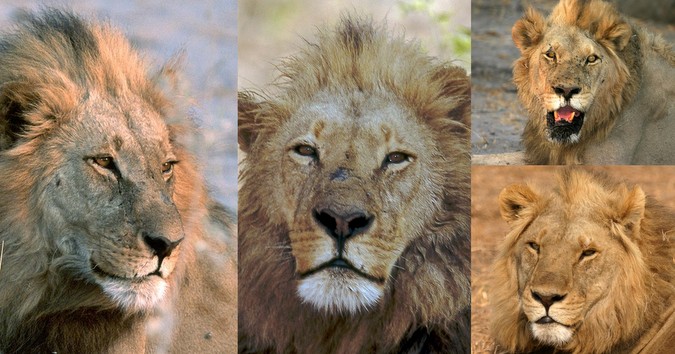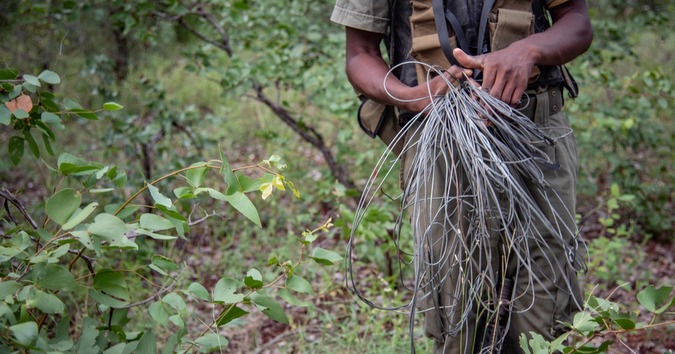Amboseli’s super tuskers are down to about 10, as trophy hunters operate in stealth mode. And with a 3rd elephant hunted in Enduimet, Tanzania, the integrity of the Amboseli elephant population is in jeopardy
Category Archives: Hunting
Open letter to Michel Mantheakis – chairman of the Tanzanian Hunting Operators Association (TAHOA)
Two super tuskers hunted in Tanzania: Africa Geographic CEO Simon Espley responds to TAHOA chairperson Michel Mantheakis
Trophy hunted: 2 super tuskers in Tanzania
Two 100-pounder elephants have been hunted in Tanzania (NOT THOSE PICTURED HERE) – raising questions about the targeting of Amboseli’s last super tuskers
Trophy hunted: Namibian desert-adapted lion – here are the facts
Trophy hunt: a male desert-adapted lion has been hunted amidst suspicious circumstances – we ask questions of MEFT
Trophy hunting in Botswana’s NG13: we follow the money
We follow the money to reveal how this trophy hunter makes huge profits by not adequately compensating the NG13 communities in Botswana
The state of Africa’s rhino
Here’s our analysis of the IUCN report containing the most recent rhino numbers, trends, poaching incidents, conservation measures & trade updates
Pongola’s elephant management crisis: a different perspective
Pongola Game Reserve faces an elephant management crisis. Paul Cryer & Pete Ruinard provide a different perspective on the challenges at hand
Trophy hunting will not save Africa’s lions – Opinion editorial
Trophy hunting will not save Africa’s lion populations, & the UK ban on imports is a positive step for conservation, writes Hans Bauer
Pongola’s elephant management crisis
Pongola Game Reserve can no longer keep its elephants. Malcolm Thomson explains the challenges of elephant management
Elephant bulls – breeding and trophy hunting
Does the hunting of elephant bulls with large tusks lead to the decline of Africa’s tuskers? We examine the science
How much to kill a woolly mammoth?
The trophy hunting of 2 of Botswana’s largest tuskers threatens community wealth, a wildlife corridor & tusker survival. By Simon Espley
Trophy hunters kill two of Africa’s biggest elephants in Botswana
Trophy hunters have killed 2 of the largest elephants left in Africa. The ongoing removal of large-tusked elephants is a conservation concern
Furore over Namibian community-based conservation
Journalists target Namibia’s community-based conservation program. This is what 76 affected entities have to say – decide for yourself
Is lion hunting sustainable?
Lion hunting sustainability in Africa has been extensively investigated by pragmatic experts desperate to conserve our remaining wild lions
70 – leopard trophy hunting quota in Botswana for 2022
Leopard trophy hunting – the Botswana government has allocated a quota of 70 leopards for 2022. Is this sustainable and how do we know?
Why rural communities choose wildlife hunting over cattle
Rural communities choose wildlife over cattle if they see and enjoy long term benefits from trophy hunting – says Namibian community member
Trophy hunters kill another breeding Hwange lion – Mopane
Trophy hunters kill another breeding lion (named Mopane) from Zimbabwe’s Hwange National Park – in a mirror of the Cecil tragedy
The end of SA’s shameful lion breeding industry – what now happens to the lions?
Thousands of captive-bred lions in South Africa – what is to happen to them as breeding facilities are closed down
Recreational hunting: 50 years of scientific research
Trophy hunting: Massive meta-analysis on recreational hunting fails to find answers to the crucial questions of the polarising hunting debate
Elephant hunting – Botswana grants 287 licenses
Botswana elephant hunting: The Botswanan government has granted 287 licenses after the previous season was disrupted by Covid
Captive-bred lion hunting not acceptable – say Dallas Safari Club & CIC
Captive-bred lion hunting “not representative of responsible, sustainable, fair chase hunting … damaging the reputation of hunters” …
Trophy hunting – how do African people feel?
Trophy hunting: How do African people perceive and react to trophy hunting compared to those from the Western public – research
Lion farming – Lord Ashcroft submission to South African High Level Panel
Lion farming presentation by Lord Ashcroft to the High-Level Panel looking at the management of lions and other species in South Africa
Trophy hunting quotas for South Africa in 2020: leopards, elephants and lion bone exports
Trophy hunting quotas for South Africa in 2020: leopards, elephants and lion bone exports – announcements by Minister Barbara Creecy
Lion trophy hunting – we interview Craig Packer
We interview researcher and conservationist Craig Packer about lion trophy hunting – with a focus on Tanzania, his former home
Human impact results in leopard inbreeding – research
Human activity is affecting negatively on leopard populations – via changes in age, sex & social structure of leopard populations – research
Trophy hunting ban could harm conservation on private fenced farms in South Africa – says study
Trophy hunting on many private fenced farms in South Africa – this study examines the impact that a ban could have on biodiversity
What exactly is CITES and how does it work?
CITES was established to regulate the international trade of animals & plants, to avoid the over-exploitation of endangered species
CITES processes are corrupt, says report
A report from TRAFFIC explains how corruption undermines the CITES-authorised trade in wildlife and offers suggestions as to how to mitigate its effects.
Humans not always to blame for genetic diversity loss in wildlife
People are not always to blame for loss of genetic diversity in wildlife, says new study.
Communities delivering conservation impact & wildlife recoveries
Opinion: Communities are delivering significant conservation results equivalent to those of government parks and reserves.
Conservation needs diversified approaches – opinion
Scientists suggest alternative land-use models to trophy hunting – models that are more inclusive of local people.
Collared elephant hunted in Botswana, tracking device destroyed
A large bull elephant carrying a research collar with a tracking device has been killed by trophy hunters in Botswana, and the tracking device destroyed.
Opinion: Trophy hunting is not all black and white, says conservation biologist
Trophy hunting: Conservation biologist explains the complexity of the situation in a remote area of Tanzania, calls for reason and practical solutions that work on the ground.
Opinion: How hunting black rhino contributes to conservation in Namibia
Black rhino hunts benefit conservation of our rhinos – opinion post by conservationist, on behalf of 64 Namibian conservation organisations.
Botswana elephant hunting: Chaos and disillusionment as citizen licenses are raffled
Botswana elephant hunting: Eight elephant hunting licenses were awarded to Maun-based Botswana citizens, and the eight winners and almost 6,000 losers were unhappy with the results when the reality of the T&Cs set in.
Trophy hunting in Zambia to be suspended due to non-payment of hunting fees to communities
Trophy hunting in Zambia has been halted because communities have not been paid their fees and share of revenue.
Minister: How many wild rhinos do we have left?
How many rhinos do we have left in our National Parks? An open letter to South African Minister of Environment, Forestry and Fisheries, Barbara Creecy.
Trophy hunters kill popular Zimbabwean lion Seduli – on World Lion Day
A well-known male lion called Seduli, who was popular with photographers, has been shot by hunters on the outskirts of Hwange National Park in Zimbabwe this past weekend on World Lion Day.
Opinion: The untold story behind hunting in Botswana
Hunting in Botswana: Human-wildlife conflict scientist takes a deeper look at whether the historic hunting ban was good or bad for elephants and people.
Yes or no – boycott tourism lodges in Greater Kruger because of neighbouring trophy hunting operations?
Does it make sense to boycott tourism lodges in the Greater Kruger because of trophy hunting on neighbouring properties? Our CEO answers the question.
Iconic desert-adapted elephant ‘Voortrekker’ killed by trophy hunter in Namibia
In yet another blow to big elephant genes, the iconic desert-adapted elephant bull known by millions of fans worldwide as ‘Voortrekker’ was killed by a trophy hunter after being declared a ‘problem-animal’ by Namibian authorities
Life with elephants
Botswana elephant debate: We speak to the MOST important people in this equation – those living with elephants
Breaking: Zambian hippo cull via hunting cancelled. Again
Breaking: Zambian hippo cull cancelled. This is the latest about-turn since the Zambian government announced plans to cull 2,000 hippos in Luangwa Valley by offering ‘hippo management hunts’.
Botswana trophy hunting: Fewer than 400 elephant hunting licenses to be granted annually, says government
Fewer than 400 elephant hunting licenses will be granted annually, the Botswana government has announced, following the reinstatement of hunting.
Large-tusked elephants are in decline, need to be protected from trophy hunting and poaching, says researcher
The need to protect large-tusked and potentially large-tusked elephants from poaching and excessive selective hunting pressure is more apparent than ever as the progressive decrease in average tusk size over the past three decades is potentially leading to over exploitation of older bulls.
Botswana brings back trophy hunting
The Government of Botswana has taken the decision to lift the hunting suspension.
Another giant elephant taken by trophy hunters
Another blow for Africa’s remaining large-tusked elephants, as trophy hunters kill another massive elephant in Gonarezhou, Zimbabwe. The surgical removal of Africa’s giants continues.
Opinion: Selinda Reserve in Botswana was not hunted out, say former owners in reply to Dereck Joubert
Previous leaseholders of NG16, also known as Selinda Reserve, respond to Dereck Joubert’s article on the state of the Selinda concession.
Video: The unintended victims of a hidden killer
The piece of looped wire doesn’t look like much. But place this wire in the hands of wildlife poachers, and it becomes one of Africa’s most deadly weapons.

